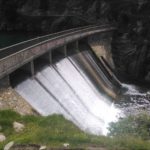
“Lasting” is not enough
It seems strange to us today, but 30 years ago little thought was given to infrastructure renewal. Infrastructures looked so solid, and lasted so long, that little attention was paid to ‘how’ they lasted so long. This was the mid 1980s, and for the past 25 years, the focus had been on construction. As the world had recovered from WW2 and refugees and immigrants flooded into Australia, we had expanded and we had built. In fact, we expanded so rapidly, that not only did we build but the focus of our building was speed, on how quickly we could establish the new housing, the new developments that were needed by our burgeoning population. That was the background for the eight Public Accounts Committee’s Reports on asset renewal. The purpose was to convince the Parliamentarians that they needed to pay attention to renewal. It worked. We started to forecast our renewal requirements and we started to manage our assets so as to contain our future costs. Maintenance improved. Decision making improved. We rethought our existing renewal practices and, in many cases, realised that our assets could last far longer than we had previously thought.
For the last 30 years we have focussed on trying to make our assets last as long as we could so as to reduce our life cycle costs. It was a worthy ambition and it fuelled an entire discipline. Asset management was born and it has flourished.
But now, as we look ahead, it is clear that the world is changing. Climate change and rising sea levels are producing problems since many of cities around the world have been built near the sea to allow for rapid sea transport. Demographic change is impacting service demand. Technological change is impacting not only consumption but production. With an internet connection, we can work most anywhere and this is changing our ideas about cities.
That is why I say that renewal is yesterday’s problem. Renewal underlies the concept of longevity. But tomorrow’s problems are around our ability to adapt to constant and rapid change. They are about Adaptability. This is where we now need to focus. And this is why our theme for December is “Adaptability”
Your ideas on this topic welcome!
 How did you go with Friday’s Puzzle to make sense of the statement:
How did you go with Friday’s Puzzle to make sense of the statement:
“The transition to a lower emissions economy is underway and cannot be reversed. Ensuring that the transition is smooth will require major investments in assets with long life spans.”
In this statement I think that there are two correct statements, another that requires a certain value proposition to be acceptable, and one that definitely shouldn’t be accepted without considerable further argument and evidence. Why? Here goes:
- ‘The transition to a lower emissions economy’ is underway. I would consider this undisputable as we have a lot of global evidence as well as experience from home.
- ‘Cannot be reversed’? Well, it is highly unlikely given our international commitments to lower emissions in the Paris Agreement.
- ‘Ensuring that the transition is smooth’? Now it starts to get tricky. Here the writer assumes that intervention to ensure a smooth transition is something that we must do, something that is innately desirable. But is it? We don’t intervene in all market adjustments. ‘Free-market’ advocates usually argue vociferously that we shouldn’t! It’s desirability and nature in this case needs to be carefully argued, not assumed.
- ’will require major investments in assets with long life spans’ . Although presented as if this is an obvious conclusion from the preceding statements, it isn’t. Closing down large (coal burning) plants does not imply they need replacement with other large plants (which Chapter 3 assumes). Demand is decreasing, production is becoming more efficient and our options are rapidly increasing. We need to examine them. The need for large, long-living, plants is no longer obvious.
Any of us can be guilty of stating something as a ‘fact’ when we should be recognising it as a ‘proposition’ to be argued, and the more passionately we believe in what we are doing, the more likely this is to be the case. So if you catch me doing the same – which is entirely likely – please call me on it, in the comments section below.
And I would love to see other examples. If we get enough we can have a special puzzle page!
 It is true and, whether deliberately or not, many policy and political statements nowadays sometimes contain elements of supposition masquerading as fact.
It is true and, whether deliberately or not, many policy and political statements nowadays sometimes contain elements of supposition masquerading as fact.
As an undergraduate I was taught to parse statements for those elements that were factually true and those that were either incorrect or purely supposition. It was one of my favourite exercises and I think it is time we brought it back into all curricula and into our daily thinking.
The following is an excellent example. It heads up Chapter 3 of The Preliminary Report of the Independent Review into the Future Security of the National Electricity Market | Department of the Environment and Energy, a chapter that deals with the transition to a lower emissions economy.
“The transition to a lower emissions economy is underway and cannot be reversed. Ensuring that the transition is smooth will require major investments in assets with long life spans.”
Innocuous? Not so. This is a case where we have three statements that we can probably accept trying to force our acceptance of a fourth, that we really shouldn’t.
Try parsing it for yourself – and come back Tuesday for my take on this.
Have fun!
 We’ve all heard the joke of the traveller asking a local how to reach a certain town and being told ‘Well now, you can’t get there from here’. We laugh, but when it comes to infrastructure sustainability, our starting point also determines where we can arrive.
We’ve all heard the joke of the traveller asking a local how to reach a certain town and being told ‘Well now, you can’t get there from here’. We laugh, but when it comes to infrastructure sustainability, our starting point also determines where we can arrive.
At a time when I was an advisor to the Minister of Construction, a new dam was proposed. I looked into the proposal. It did not permit extension of the growing area, nor, because of the weather conditions, did it permit extension of the growing time. At best it would provide a fall back for famers in case of drought. However the benefits of that for the few farmers involved came nowhere close to covering the costs involved. No matter which way I looked at it, on economic, social or environmental grounds I could not make it stack up. What really puzzled me was that the major advocate for the dam was no idiot. He was, in fact, a Rhodes Scholar. I said it was a money losing proposition – and he agreed with me!
“Then why on earth do it?” I exploded in frustration.
“Well”, he said, “the money’s going to be spent on something, so it might as well be here!”
Today we tend to start from the assumption that we have to build something which we can see by the fact that governments determine their capital budgets separately from their recurrent budgets. And we often hear anxiety around the notion that ‘we have to keep up the pipeline of construction projects’.
Why? Why is it important to keep UP the capital spend, but keep DOWN the recurrent spend? Is it even possible?
If we want sustainability, maybe we need to look at where we are starting from.

Christmas pop up market at The Rocks
Pop-ups, those temporary, transitory events and structures have lately become very trendy. Marketers love them because, as humans, we are hard wired to respond to novelty. There is also a fear of missing out if we do not take immediate advantage of what is on offer because we know there is a good chance that next time we pass by, whatever it is won’t be there. OK. If the chief characteristic of pop-ups is their transitory nature – and the chief characteristic of infrastructure is its longevity, what are we to make of a headline reading ‘Pop up Prison’?
When I saw it, my first reaction was to smile. I thought of a young and earnest journalist wanting to be up with the latest, and a harassed sub-editor, too busy to correct. After all, pop-up infrastructure is a contradiction in terms, an oxymoron. But behind the trendy term lies a more serious issue.
In New Zealand, the reference was to ‘rapid build’ which is more accurate. The cell design is one that is in use in war zones and resembles detention centres surrounded by razor wire. The cells can be rapidly deployed. This is the attraction now for cities with overcrowded prisons. In war zones rapid deployment is a response to a sudden and urgent need. It is very costly but in wartime there is not the luxury of time to plan so we wear the costs. But the same argument can hardly apply to prisons. This has grown up over many years and we have been aware of it. We just haven’t been prepared to do anything about it. Now under the cover of urgency, do we throw caution to the wind, fail to plan properly, and exacerbate our future cost problems?
It is generally recognised that around 75% of the life cycle costs of infrastructure is committed at the planning stage, when we decide where and what to build. Total life cycle costs may also be considered inversely proportional to time spent in quality planning.
Question: Why do we – both as individuals and organisations – so frequently put off thinking about, and planning for, known future contingencies until our scope for action is drastically reduced? And what can we do about it?

Recent Comments